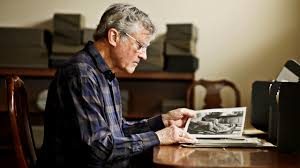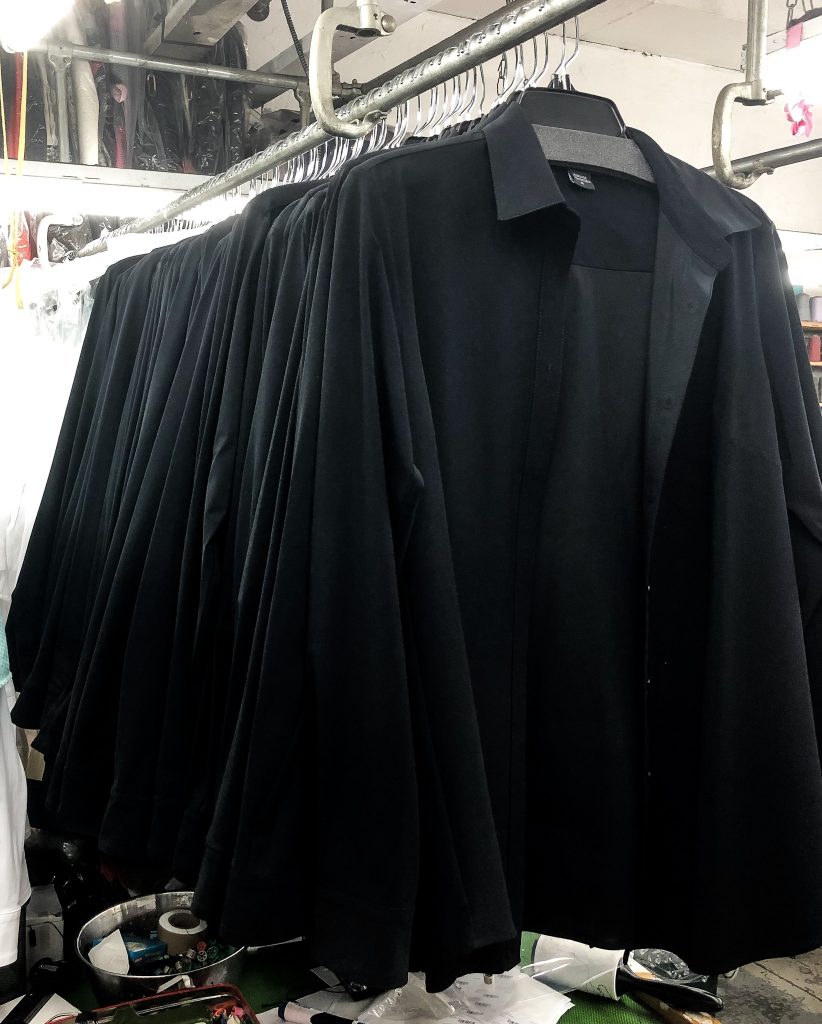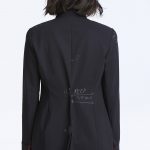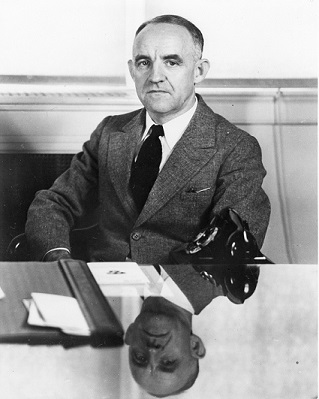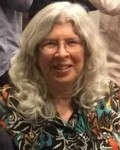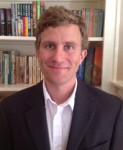Spring 2019 – Archives
| Expand All | Collapse All |
| Department News |
ViewUNC History Students Selected as Army ROTC Battalion Commanders As other new graduates start their first post-college jobs, History major Jake DiMartinis and History minor Connor Jacobs Leech will begin their months-long Basic Officer Leader Course. DiMartinis and Leech are cadets in the ROTC, and both will commission as second lieutenants in the U.S. Army after graduating in May. For cadets, or officers-in-training, participating in the Army ROTC during college requires discipline. DiMartinis, Leech, and the other cadets take Army classes every semester and must earn a minor in Military Science. Three mornings per week, the cadets do an organized workout session at Smith Field House. On some days, they go running, and on others, they walk around campus wearing heavy backpacks. On Wednesdays, the cadets practice infantry tactics, often at Battle Park. They also perform in the color guard at UNC sporting events. “ROTC does, on the surface, sound like it’s a lot, and that it might interfere with your school, but it never really has,” Jake DiMartinis said. “I feel like it’s enhanced my college experience, and I think both the academic side of things and ROTC side of things have made me a better leader.” Developing leadership skills has been especially important for DiMartinis and Leech during their final year in ROTC. All seniors hold staff positions, but Leech and DiMartinis were selected as battalion commanders in Fall 2018 and Spring 2019, respectively. The battalion commander oversees the entire battalion, managing staff, creating training schedules, and generating policies. To prepare for these staff positions, DiMartinis, Leech, and the other cadets attended a month-long Advanced Camp, or officer leadership training course, the summer before their final year of college. Jake DiMartinis believes his history education helped prepare him for Army leadership training. “A lot of times when we’re learning about leadership in our classes, we look at historical examples, and not just American history. History definitely plays a role because that’s how we learn, we look at those case studies,” he said. Connor Leech expects his training in history to make him a better leader in the Army: “History is so extremely important not just for understanding the lessons we’ve already learned as an army and what other armies have learned, but also because as an Army officer you’re always trying to look toward the future, and it’s always important to have that context.” 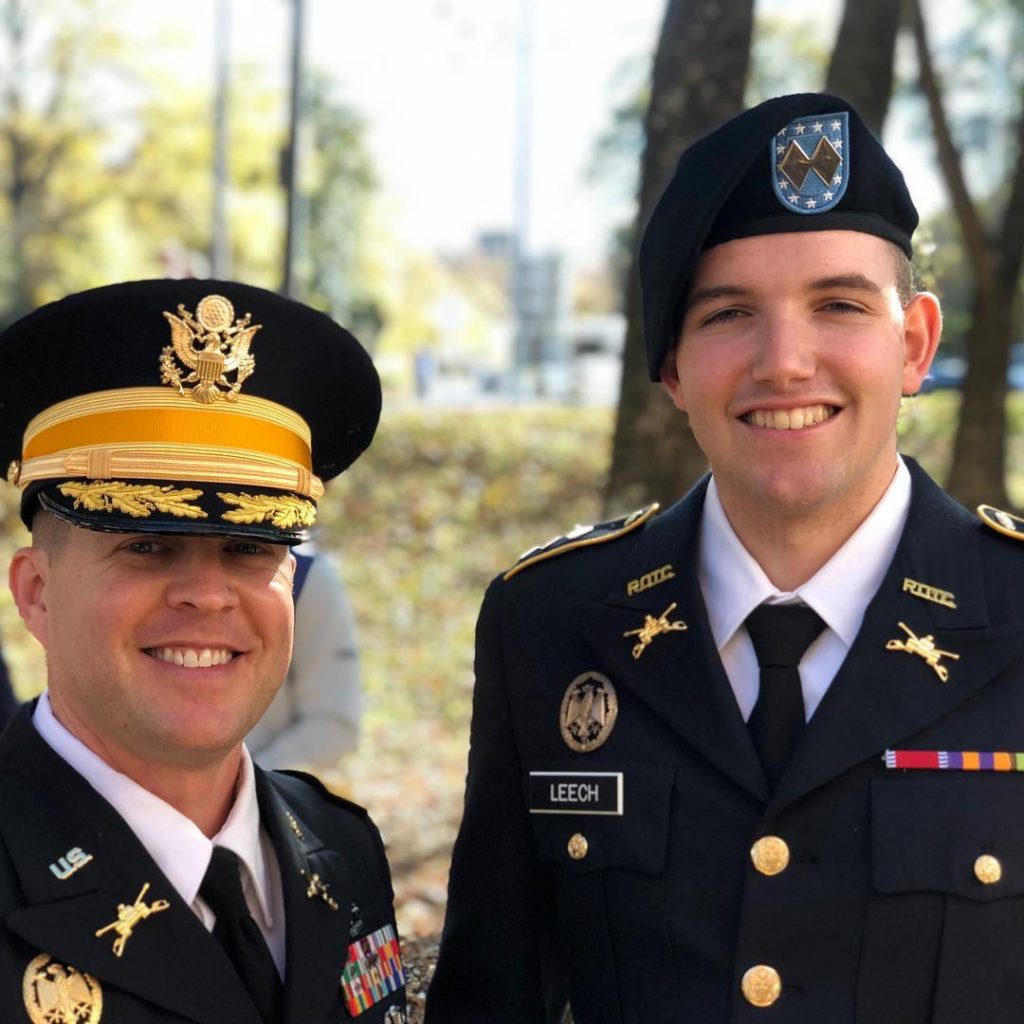 Leech sees lessons for Army officers in topics far removed from U.S. military history, including his senior thesis. Leech wrote a paper that compared seventeenth-century Irish peasant unrest to eighteenth-century English peasant unrest as part of Dr. Wayne Lee’s Burch Field Research Seminar in Exploration, Colonialism, and Violence in London. “The English aristocracy didn’t see the Irish for anything more than the financial aspect, rather than as members of their community,” Leech explained. He pointed to situations where Army officers might work with populations facing internal conflict. “If you are unable to see groups that you’re attempting to guide to a better place economically and politically as members of your community, then you’re never really going to successfully be able to do things like counter-terrorism or stability operations, which are so important these days,” he said. While DiMartinis and Leech believe that learning history can help Army officers develop leadership skills, Leech also encourages History majors to take Army classes, even if they have no intention of joining the military. “A lot of times the people who do come and take our Army classes are able to get a little more perspective on how the Army looks at problems and how the Army interacts with history, and it really adds another level of why history matters.” Leech explained. “I think that the Army is an organization where there is a very concrete argument for why history matters.” Although both DiMartinis and Leech participated similar training during their time in ROTC, their paths will diverge after they graduate and go on to their Basic Officer Leader Courses. ROTC cadets are assigned to one of sixteen different Army branches. DiMartinis will join the Military Police, where he will oversee a platoon of approximately 32 soldiers doing work in law enforcement operations, convoy security, and refugee resettlement. Leech will become an Armor Officer, commanding tanks in reconnaissance operations. Both are committed to the Army for at least four years after graduation, but they are considering further academic training. Leech might return to graduate school to study history, and DiMartinis would like to become an attorney. Both are thinking of doing so through the Army– after all, they have wanted to join the military for most of their lives. In fact, Dimartinis sees his long-time passion for history as one of the reasons the decided to pursue a career in the military in the first place: “Growing up, I was a big history buff, and I loved studying history. I think that inculcated a desire for public service in me.” – Aubrey Lauersdorf History faculty offer new research-related skills courses for undergraduate students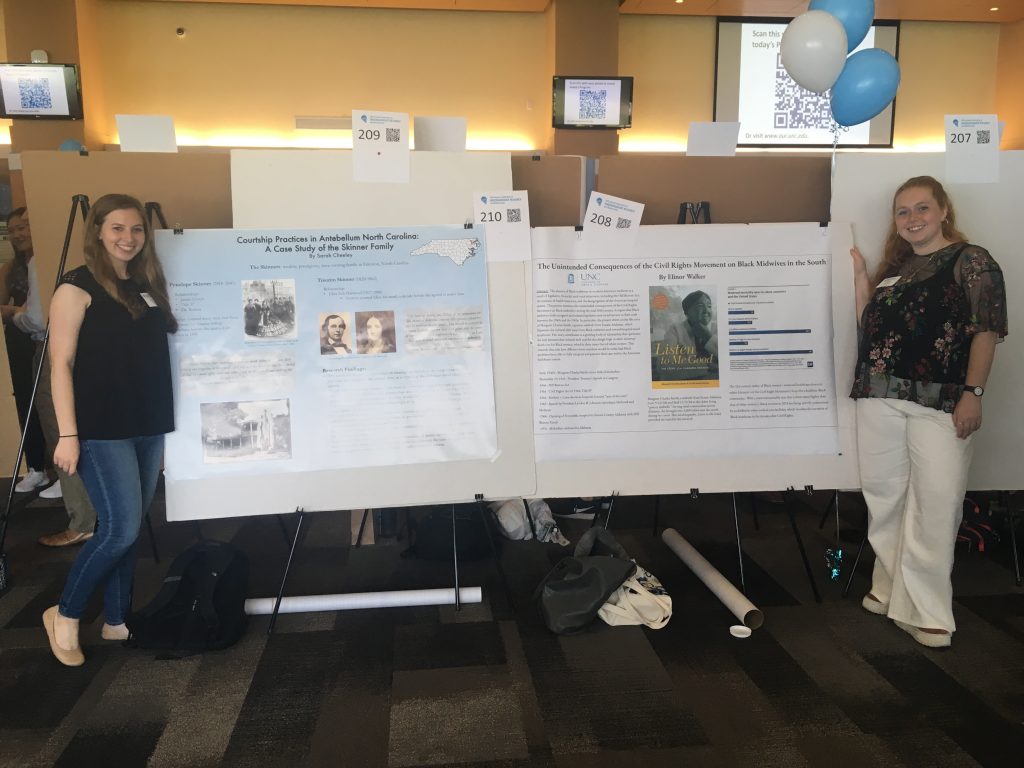 In recent years, the University of North Carolina has encouraged faculty across disciplines to provide new opportunities for undergraduate students to develop research-related skills. Many history courses already include student research, especially the History 398 capstone courses, in which students produce extensive papers based on original work with primary sources. In addition, History Department faculty including Brett Whalen, Ben Waterhouse, and Eren Tasar are providing innovative research opportunities to undergraduates through new courses in a new format. For Whalen, Waterhouse, and Tasar, these new courses—numbered History 395–were supported by the University’s Quality Enhancement Plan (QEP). Created as part of the 2017 Southern Association of Colleges and Schools Commission on Colleges accreditation process, the QEP funds experiential learning opportunities for undergraduates, including research-related skills courses. The QEP challenges faculty to connect these 1-credit classes to an existing course offering, rather than developing stand-alone courses. This model encourages undergraduate students to go above and beyond the usual course expectations. Brett Whalen, who serves as Director of Undergraduate Studies, immediately encouraged History faculty to develop research-related skills courses through the QEP, and he also taught one himself. Whalen invited students who took his first-year seminar the previous semester, titled “Time and the Medieval Cosmos,” to take a follow-up class that focused on a detailed analysis of one primary source, Saint Bede the Venerable’s The Ecclesiastical History of the English People. “I thought this would be a great opportunity because I could draw upon the pool of students that already had some exposure to the subject material about medieval history of science, medieval astronomy, and medieval history, and then¬–this is something you don’t get to do all that often–actually carry on that discussion across two semesters,” Whalen said. “I hadn’t spent that much time ever working on Bede–usually it’s just a week or two. They developed a real sense of Bede that went far beyond the cursory understanding they got in the fall.” With few limitations placed on them by the QEP, History faculty participating in the program had the freedom to develop their research-related skills courses as they saw fit. While Whalen focused on analyzing historical sources and creating research questions, Ben Waterhouse taught students how to share their research with a broader public. Students in Waterhouse’s class learned how to write an abstract, prepare their paper for submission to a journal, and give a formal research presentation. Waterhouse invited any student who wrote a 20-30-page research paper in a previous Hist 398 capstone course to apply for his History 395. As a result, student papers focused on topics as diverse as British history, slavery in the United States, the Angolan Civil War, and the transatlantic slave trade. “I said from the very beginning, I can’t come into this as a subject matter expert,” Waterhouse explained. “They’re doing a great job of learning from each other but also talking about how to make their claims and arguments interesting to a broader group of people.” Waterhouse believes these research-related skills courses offer new opportunities for not only undergraduate students, but also faculty. “In some ways, I think what it’s allowing is to broaden what we mean by historical research,” Waterhouse said. “In my History 398 course, I’d have a fairly traditional model: go to Wilson Library and crack open some boxes, or maybe there are online sources, or maybe there are oral histories. What we’re doing in the various incarnations of History 395 is expanding what research skills mean for historians.” In fact, many of the students in Waterhouse’s class presented their work at the Celebration of Undergraduate Research on April 25. Four of his students created posters to highlight the main approaches and findings of their research projects. “Their posters used images and text bubbles,” he recounted, “and in some cases charts and pulled-out quotations from sources, to summarize the arguments, historiographical contribution, and overall significance of their research.” This well-attended, college-wide attend allowed the students to showcase their findings to an interdisciplinary audience. The QEP can fund only a limited number of History 395 courses, but the Department is committed to supporting opportunities for undergraduate students to gain research-related skills. For example, graduate student Till Knobloch taught a section of History 395 called “The Rise of the Third Reich,” which was funded by the Department. Knobloch asked students to read and analyze sources about the rise of fascism in Germany. In Fall 2019, Professor William Sturkey will teach a research-related skills class called “Race & Memory at UNC,” which asks students to use primary documents to explore the history of their own university. “[Dr. Sturkey’s class] is really about memory and commemoration, and using history as a way to have fruitful, present-moment debates, so it plays directly off of the last couple of years of events on campus. It’s another research skill,” Waterhouse explained. – Aubrey Lauersdorf History Department Organizes Interdisciplinary Global Brexit Conference
The conference was the fourth iteration of the “Lost Futures of European Empires” series initiated nearly a decade ago in partnership with King’s College London. Previous conferences in 2012, 2014, and 2016 have been held in both London and Chapel Hill. This year’s conference was co-convened by Profs. Susan Pennybacker and Cemil Aydin. “The goal is to promote dialogue about political thought and global political culture: internationalism, nationalism, and various Pan-movements, including Pan-Asianism, Pan-Africanism, and Pan-Islamism, and to have dialogue across time periods and across empires,” Dr. Pennybacker said. “The conceit of this conference was to address Brexit as a signal that could prompt us to explore the lost futures and histories of empire.” The Center for European Studies at UNC-CH, a Jean Monnet Center of Excellence, with assistance from the European Union Erasmus+ Programme, and US Department of Education Title VI funds, brought to Chapel Hill Jon Parry, Professor of Modern British History at the University of Cambridge; Lawrence Black, Professor of Modern History at University of York, UK; Dr. Pradip K. Datta, Professor at the Centre for Comparative Politics and Political Theory at the Jawaharal Nehru University, Delhi; and Dr. Sana Tannoury-Karam, Post-Doctoral Fellow in Middle East History at Rice University. A number of other scholars from both the United States and the United Kingdom presented at the conference at the invitation of the conference’s conveners. They funded their own travel, a testament that the conference drew strong interest. Funding also came from co-sponsors, including the African Studies Center, the Carolina Asia Center, the Carolina Center for Jewish Studies, Carolina Seminars, the Center for Middle East and Islamic Studies, the Duke-UNC Consortium for Middle East Studies, the Center for Global Initiatives, the College of Arts and Sciences (UNC-CH), the Institute for the Arts and Humanities, the Curriculum in Peace, War and Defense, the Center for Slavic, Eurasian and East European Studies, the Curriculum in Global Studies, and the Office of the Dean, College of Arts and Sciences, North Carolina Central University. The conference opened on April 4. Senior Associate Dean Rudi Colloredo-Mansfield and UNC History Department chair Lisa Lindsay greeted the keynote Global Brexit Panel that evening, which brought together an interdisciplinary group of scholars whose research interests and university affiliations span the globe: Jon Parry (modern Britain), Lawrence Black (modern Britain), and Pradip K. Datta (modern South Asia) were joined on the panel by Michael Tsin, Associate Professor of History and Earl N. Phillips Jr. Distinguished Professor in International Studies at UNC-Chapel Hill (modern China); Anne-Maria B. Makhulu, Associate Professor of Cultural Anthropology and African and African American Studies at Duke University (modern Africa); and Tobias Hof, PD Dr. Ludwig-Maximilians-Universität Munchen (modern Europe, Italy and Ethiopia). Over the course of the next two days, conference presenters spoke on an array of related topics, including colonial settlers, imperial histories of Southeast Asia and the Caribbean, transnational religious thought, and the impact of media. In addition, Dr. Daniel Walkowitz, Professor of History and of Social & Cultural Analysis Emeritus at New York University, spoke about his recently-published book The Remembered and Forgotten Jewish World: Jewish Heritage in Europe and the United States (Rutgers University Press, 2018). The book examines Jewish heritage sites in Europe and the United States, and it focuses on the erasure of late nineteenth and early twentieth century socialist movements from Jewish collective memory, despite their achievements in promoting workers’ rights. The conference proved a great success. It was the largest of the four “Lost Futures of European Empires” conferences, drawing between 200 and 250 people, and presenters offered significant historical insights pertinent to present international issues. Undergraduates, graduate students, scholars, and the general public comprised the audiences. UNC-CH departments were well-represented, with more than thirty graduate students and faculty from History alone speaking and attending. Professor Emeritus William R. Ferris wins a Grammy for Best Historical Album
Ferris was approached by April and Lance Ledbetter, founders of the Atlanta-based production company Dust-to-Digital, to collaborate on a boxed set of his recordings. Ferris immediately knew he wanted to work with the Ledbetters. “I’ve used their work in my Southern music class for years– it’s invaluable. They’ve won several Grammys for their work before. I said I’d be honored to do it,” Ferris said. “I think neither they nor I knew how long it would take or how much would be involved!” he added. Although Ferris’ recordings and photographs provided the source material for the boxed set, he let his collaborators take the lead. “I felt sort of like a writer whose work is being made into a film: you just let the film director do his or her good work and don’t intrude. And in every way–from the selection of recordings, to the selection of photographs, to the design of the whole project–I made suggestions, but they were only suggestions. I didn’t expect them to do anything other than what they thought was best.” “Where I did engage in the project in a really close way was with the transcriptions in the book,” Ferris explained. “Having taught Southern literature and the oral tradition, I see these voices are oral literature, and it’s especially important that someone reading the book be able to read them. It’s quite powerful.” Studying oral tradition as literature is at the core of Ferris’ work, and this passion led him to collect recordings in the first place. Ferris was a member of the only white family in an isolated, rural community in Mississippi. The church he attended had no hymnals, and as he grew older, he realized that his church’s musical traditions would disappear as older members of the congregation passed away. So, as a young person, Ferris began to take photographs and recordings of members of his own community. At first, Ferris did not realize he could turn his passion for recording and preserving Southern folk music and oral tradition into a career. While attending Trinity College in Dublin after completing an M.A. in English Literature, Ferris happened to sit next to Francis Utley, a former president of the American Folklore Society, at a breakfast event. Ferris mentioned his frustration with English departments that would not let him focus his research on oral traditions, and Utley suggested he consider the field of folklore instead. Ferris applied and was accepted to the doctoral program in Folklore at the University of Pennsylvania. “I brought a box of tapes and photos to my adviser’s office on the first day, and I said: this is what I’ve been doing– can I do it here? He said, that will be your dissertation. So, I kept doing it all my life,” Ferris explained. “This box set begins with some of those earliest recordings.” After completing his doctorate, Ferris taught at Jackson State University, Yale University, and the University of Mississippi, where he helped found the Center for the Study of Southern Culture. Ferris then served as Chair of the National Endowment for the Humanities during the Clinton administration, before accepting a position as Professor and Senior Associate Director of the Center for the Study of the American South at UNC-Chapel Hill in 2002. During those years, Ferris continued to add to his collection of audio and video recordings, which are now preserved with the rest of his papers in the Southern Historical Collection. Even after many years, Ferris maintains a personal connection to his early recordings. In many cases, Ferris visited the same artists year after year, and they developed close friendships. “I tell my students, when you do oral histories, it’s not like taking a book off a shelf and putting it back on. You create a lifelong relationship with that person or that family. A lot of the people with whom I worked are sadly no longer alive, but their children and grandchildren are, and I’m still in touch with them,” he said. “If your work connects to the people with whom you’ve worked, that’s the ultimate compliment, more than a scholarly review.” When Ferris first started recording music and oral histories in the 1960s, it was a laborious task. He carried a truckload of equipment, including a Super 8 motion picture camera, still cameras, microphones, film, analog tape, extension cords, and tripods. Now, smartphones and other digital devices make recording oral histories a much less expensive and time-consuming project. Ferris encourages his students to use these new technologies to record their parents’ and grandparents’ stories. “It’s with a sense of urgency that we do oral history, knowing we capture in that moment what might be a priceless pearl of wisdom, a voice that future generations will listen to and be deeply moved by,” Ferris explained. “And that is the case with The Voices of Mississippi. It’s a timeless capsule of music and spoken word that is as relevant today as it was in the 1960s.” – Aubrey Lauersdorf |
| Faculty Spotlight |
|
View
No items found
|
| Alumni Spotlight |
ViewUNC History Graduate Adrienne Kronovet Starts Own Fashion Company, featuring “Molly” Jacket named after Professor Molly Worthen
Kronovet first became interested in designing her own jacket, and she started attending fabric shows. Inspired by finding an “amazing” Italian quad stretch fabric, Kronovet decided to move to New York City to start her company, Ameliora. “It’s sort of stretchy. It’s soft. It moves with you. And I thought– could I make a suit out of this? Because I knew if I did it, it would make people feel super confident and empowered,” Kronovet explained. Now, she offers a variety of jackets, pants, skirts, shirts, and dresses, all made from the fabric she found during her last year of college. To name her pieces, Kronovet looks to influential women in her life for inspiration. She currently offers the “Molly” jacket, named for Dr. Molly Worthen, with whom Kronovet took the “Sin and Evil in Modern America” capstone course. “It was one of the first classes where I really started to think critically, and those critical thinking skills have continued with me ever since,” Kronovet explained. The skills gained through her history education have helped Kronovet get started in the fashion industry. “When you study history, the first thing you’re really taught is to question everything and really try to understand, and that kind of critical thinking has given me an amazing approach to fashion, because through that I’m able to question the norms,” she said. She pointed to her design process as an example. “Our jackets are lined in silk, but our dresses, pants, and skirts also have silk lining on the seams for that added luxury. No one really does that in the industry, but when I came in through this critical thinking approach, I asked: why not? Why do we have to do things this way? Why don’t we try this? And it’s been really successful.”
Finding a factory to produce her pieces locally was not a challenge for Kronovet. “The garment district in New York is thriving,” she explained. “There are so many wonderful factories that are doing remarkable work.” Now, Kronovet has a number of collaborators in New York, including not only the factories that produce Ameliora’s pieces, but also the experts who help create and print patterns for Kronovet’s designs. Kronovet based the name of her company on the Greek word melior, which she described as the “idea you can make the world a better place through human effort.” Besides a commitment to supporting American manufacturing, Ameliora donates a portion of all profits to the Healing Heroes Foundation, which funds treatments for veterans with PTSD; the Seleni Institute, which supports maternal mental health; and the Global Housing Foundation, which helps provide housing for the working poor. Kronovet points to the Greek value of philotimo as her reason for building support of non-profit organizations into her business model. On Ameliora’s website, Kronovet describes philotimo as “the sense of love for family, community and country. Philotimo means having conviction in your core values and principles. It means doing the right thing.” Kronovet first learned about philotimo from the Greek CEO of a private equity firm she interned for in college, and it has shaped her career goals ever since. “You don’t have to sacrifice your integrity to be successful, and since I heard that at nineteen, that’s something that really resonated with me, and that’s something that I knew that I one-hundred-percent wanted to make the core of my business. You do the right thing because it’s the right thing. That’s it,” she said. – Aubrey Lauersdorf |
| History in Our World |
|
View
No items found
|
| Out of the Archives |
ViewThe Life of Frank Porter Graham
Frank Porter Graham was born in Fayetteville, North Carolina in 1886 and completed his undergraduate work at UNC in 1909. Although he began working in the UNC History Department as an Instructor in 1914, a stint in the US Marine Corps during World War I interrupted his teaching. He returned to UNC as an Assistant Professor in 1920, reaching the position of Professor of History by 1930. That year, he became University President, a position he held until 1949. Graham’s work, however, extended far beyond the classroom. In 1928 and 1929, Graham became involved in North Carolina’s Citizens Library Movement, which strove to establish at least one public library in every county. He also concerned himself with labor conditions in the state’s textile mills and pressed for workers’ rights to organize and bargain collectively during a 1929 unionization campaign in Gastonia. Graham’s political work soon drew him beyond North Carolina as the Great Depression spurred the birth of various New Deal agencies. Graham served on the Consumers Advisory Board of the National Recovery Administration and on the Social Security Advisory Committee. Once World War II broke out, Franklin D. Roosevelt appointed Graham to serve on the National Defense Mediation Board and its successor, the National War Labor Board, which arbitrated labor-management conflict to guarantee the maintenance of defense production. Additionally, Graham concerned himself with racial injustice, which he witnessed daily in his home state. In December 1946, President Harry S. Truman appointed Graham to his newly-formed President’s Committee on Civil Rights. Graham’s appointment lent him a national platform from which to advocate for racial desegregation and the abolition of the poll tax. Truman also appointed Graham to a three-person United Nations committee to seek a peaceful settlement of violence that broke out between anti-imperialist Indonesians and Dutch colonizers in the wake of the World War II, a conflict that would ultimately culminate in Indonesian independence. He, along with Paul van Zeeland of Belgium and Richard Kirby of Australia, helped broker a cease-fire at the start of 1948, though once Graham departed Indonesia subsequent Dutch-Indonesian negotiations broke down and violence persisted into 1949. The following year, Graham embarked on a campaign for a seat in the US Senate. Graham had briefly served as a Senator since 1949, having been appointed by Governor Kerr Scott to fill a seat left vacant upon the death of Senator J. Melville Broughton in March. However, the 1950 contest between Frank Porter Graham and Willis Smith, both Democrats, proved bitter. The election pitted Smith’s Southern conservative wing of the Democratic Party against Graham’s racial progressivism and liberal platform, which aligned more closely than Smith’s with the Fair Deal program put forth by the national party during the Truman era. Ultimately Graham’s campaign failed to muster sufficient support to win him the seat, and he left politics to return to international work. Beginning in 1951, Graham became more involved in the work of the United Nations as the UN representative for India and Pakistan in the Kashmir dispute from 1951-1967. In this capacity he worked to broker negotiations between India and Pakistan for the demilitarization of Kashmir during a particularly tense period in that conflict, that included the 1965 Indo-Pakistani War. Graham returned to life in Chapel Hill after retiring from his post as UN Representative for India and Pakistan in 1970 due to poor health, and he died two years later. Though Graham had traveled the world, he was buried in Chapel Hill, where he had first begun his career as a UNC History Department Instructor. For further reading: Ashby, Warren. Frank Porter Graham: A Southern Liberal. Winston-Salem, NC: John F. Blair Publisher, 1980. Pegg, Carl H. History and Historians in the University of North Carolina, 1795 to 1950. Unknown location: Unknown publisher, 1990. Pleasants, Julian M., and Augustus M. Burns III. Frank Porter Graham and the 1950 Senate Race in North Carolina. Chapel Hill: The University of North Carolina Press, 1990. |
| Graduate Student News |
ViewGraduate Students pursue career opportunities beyond the academy
Among the opportunities available at UNC for graduate students to explore non-academic careers is the Clein Fellowship. The competitive fellowship offers funding to a handful of graduate students each summer to support their pursuit of internship opportunities in non-academic settings, including non-profit organizations, corporations, government agencies, labor unions, museums, libraries, historic sites, and media organizations. Emma Rothberg, a third-year PhD student in US History, received a Clein Fellowship for the summer of 2018 to intern with the Library Instructional Services staff at UNC’s Wilson Library. “I had initially gone into Wilson looking for an archive job, as I had done some collections work in college,” Rothberg said. Because construction in Wilson Library limited her ability to work in the archives themselves, she devoted most of her time to developing its Library Guides and writing blog posts. “Library Guides serve as starting places for researchers coming to Wilson Library. They list relevant secondary and archival sources as well as any databases that may be of use,” Rothberg said. “Library Guides are useful for Wilson’s outreach services too, as they are used in K-12 classrooms as well as UNC classes.” Rothberg’s expertise in nineteenth century US History proved indispensable in her work at the Library. “The two Library Guides I wrote were on the Civil War and Reconstruction,” Rothberg said. “Both of these topics are huge and get a lot of research traffic, but Wilson had no comprehensive Library Guide for them.” While Rothberg and many other graduate students have benefited from the Clein Fellowship, others have gained experience in non-academic settings through other avenues. Brian Fennessy, a seventh-year PhD candidate in US History, is currently completing a year-long internship with the Office of the Secretary of Defense—Historical Office, an opportunity he first learned of through UNC History Department’s Dr. Wayne Lee. Fennessy described the Office of the Secretary of Defense—Historical Office as “the institutional memory of the Office,” which documents “the policies that have been set not only by the Secretary, but also by Undersecretaries and Assistant Secretaries for personnel, intelligence, research, development, and acquisition.” Fennessy’s work consists mainly of developing a database documenting each country that former Secretaries of Defense have travelled to since 1947. Once the database is made public on the Department of Defense’s website, users will be able to explore by clicking on any Secretary or any country. “This is something the Secretary of State’s historical office started years ago,” Fennessy said. “It’s long-term ambition of our historical office to create a similar database.” Yet short-term “taskers” often interrupt his work on the database. “We provide historical input when different defense agencies have a question about precedents for creating new policies,” Fennessy said. “We give one to two pages giving historical background that can potentially inform a policy decision.” Fennessy sees the short-term taskers as one of his favorite parts of the job. “We have a very short deadline to turn it around really quickly,” Fennessy said. “I think it’s exciting to have to drop everything and research something you don’t know much about and use your historical resources to give an informed perspective.” Although the Historical Office differs from academia in certain respects, Fennessy’s graduate experience at UNC has contributed greatly to his government work. “It deals with a lot of the same basic skills we learn in graduate school—thinking about change over time and continuity, comparative analysis, being able to find the information you need—but I am now writing for government audiences.” Fennessy said. “And that’s something you learn in graduate school too—to write with a particular audience in mind, and at the same time, not whitewash anything.” Overall, Fennessy’s experience has led him to explore more seriously a career in public service or policy-related fields. “I’m still doing rigorous historical work every day, and you can see that there is an immediate benefit to what you are doing,” Fennessy said. “I find that very fulfilling.” Graduate Student News – May 2019
We continue to offer summer funding to graduate students seeking internships as professional historians outside the classroom. This year, Clein Summer Internship Fellows include Alexandra Odom, who will conduct much of the research for a documentary film about the history of segregation in the Chapel Hill Schools; Ian Gutgold, who will help the National Civil Rights Museum in Memphis catalogue and describe photographic collections while also developing new exhibits; and Sarah Miles, whose internship with UNC Press will not only assist their efforts, but give her an inside look at publishing as she continues her own research on the history of the industry. With the growing importance of Digital Humanities, the department has created a Digital History lab next to the graduate lounge, where our students can develop new skills to enhance their research and its presentation. Graduate Student History Society Development Coordinators Sarah Miles and Emma Rothberg organized a spring Graduate Student Colloquium. In coordination with prospective student weekend, Mira Markham and Craig Gill presented portions of their MA research. Mira discussed the resistance network “Svetlana,” wartime partisans and anti-Communist resistance in the Bohemian Czech lands after WWII, and Craig discussed “The Black Caddie in the White Mind,” about the role of southern golf resorts as tourist fantasylands for wealthy white northerners. Dr. W. Fitzhugh Brundage offered insightful commentary. They also arranged a January “Alt-Ac Internships and Careers” which featured an array of speakers including Amy Blackburn (UNC Career Development), Dr. Max Owre (Carolina Public Humanities and UNC History), and Lucas Kelley (UNC History Graduate Student). Finally, in March, we held an event on Early Career Development for first and second year history graduate students. We had commentary from Drs. Ben Waterhouse and Karen Auerbach as well as from our own Lars Stiglich. The annual conference that connects UNC graduate students with students from King’s College, London continues this year, organized by our own Robin Buller and Chad Bryant. We were delighted to admit 18 new students for our incoming class. This is a remarkably diverse and international cohort, representing five countries (US, UK, Thailand, the Czech Republic, and Chile) and focusing on topics as varied as abortion under the Third Reich, political ramifications of the history of Chile’s environment, inequality and identity among American workers in the 20th century, and the history of a Czech-Polish border town in the 1930s. I hope to update the web site news more frequently in the future, so please check often to see what your friends and colleagues have been doing. I would love to add your publications, awards, accomplishments, blog addresses, podcasts, etc., so please send them any time during the year. For a complete listing of our terrific graduate students’ awards, please see the department’s Annual Review, coming your way this summer. -Sarah Shields, DGS |
| Undergrad News |
ViewUndergraduate Program
Working in conjunction with the Study Abroad Office, the department awarded Boyatt prizes to Payton Millikin for the summer UNC Life Writing in Ireland program; Meredith Hinshaw, also for UNC Life Writing in Ireland; Keely Curry, for the UNC Science in Dublin program; Jennifer Lao for the fall 2019 semester at the University of Melbourne; Daniel Ogunbamowo for the fall at the University of Hong Kong; and Katie Patton for the fall at the University of Aberdeen. Two students received funding from the new 398 Capstone Research award program: Klaus Mayr for travel to Puerto Rico related to his project “Exploring the Socioecological Legacy of U.S. Military Presence in Vieques,” and Edward Batchelder for travel to the Kennedy Library in Boston related to his project “The Inside History of the 1961 Berlin Crisis.” This spring, the department launched a new competition for stipends to defray the expenses associated with unpaid summer internships by our majors. The first round of winners included Catherine Blake-Harris for her internship at the US Embassy, Madrid; Sarah Cheeley at the U.S. DA’s Office, Western District, Charlotte, NC; Mercer Brady at the Congressional Office of N.C. congressman Ted Budd; Kimberly Oliver at the Stagville State Historic Site, Durham, NC; and Aaron Sugerman at the Transatlantic Forum for Education and Diplomacy in London, England. As always, the department was especially gratified to award three of its long-standing prizes, the Kusa award, Meador prize, and Frank Ryan prize. The Kusa award for travel and research by an incoming senior honors thesis student went to Kevin Gauch for travel to Tulane University and Louisiana State University related to his upcoming senior honors project, “The Debate over Reopening the Transatlantic Slave Trade, 1853-61” (directed by Harry Watson). The Meador prize for the best 398 capstone essay went to Kimberly Oliver for her work “Watching from the Windows: Women’s Suffrage and Institutional Support at Birth Carolina’s State Normal and Industrial College” (written for William Sturkey’s seminar on “Hometowns”). Last but not least, the Frank Ryan Chancellor’s Award for the best senior honors thesis went to Max Conley (co-advised by Morgan Pitelka and Miles Fletcher), “The World Whole: An Environmental History of Japanese Space Power.” The History department congratulates all its prize and award winners. In addition to supporting students directly, this year the department also awarded three “teaching innovation” grants to faculty planning new and attractive undergraduate courses outside their typical areas of teaching expertise. These awards went to Ben Waterhouse for his proposed class “The History of the Computer,” to Michelle King for “Global Food History,” and to Lauren Jarvis for “Globalization since 1500,” which focuses key commodities that have shaped processes of globalization in the modern era. — Brett Whalen |
Gifts to the History Department
The History Department is a lively center for historical education and research. Although we are deeply committed to our mission as a public institution, our “margin of excellence” depends on generous private donations. At the present time, the department is particularly eager to improve the funding and fellowships for graduate students.
Your donations are used to send graduate students to professional conferences, support innovative student research, bring visiting speakers to campus, and expand other activities that enhance the department’s intellectual community.
 |
To make a secure gift online, please click “Give Now” above.
The Department also receives tax-deductible donations through the Arts and Sciences Foundation at UNC-Chapel Hill. Please note in the “memo” section of your check that your gift is intended for the History Department. Donations should be sent to the following address:
UNC-Arts & Sciences Foundation
Buchan House
523 E. Franklin Street
Chapel Hill, NC 27514
Attention: Ronda Manuel
For more information about creating scholarships, fellowships, and professorships in the Department through a gift, pledge, or planned gift please contact Ronda Manuel, Associate Director of Development at the Arts and Sciences Foundation: ronda.manuel@unc.edu or (919) 962-7266.


